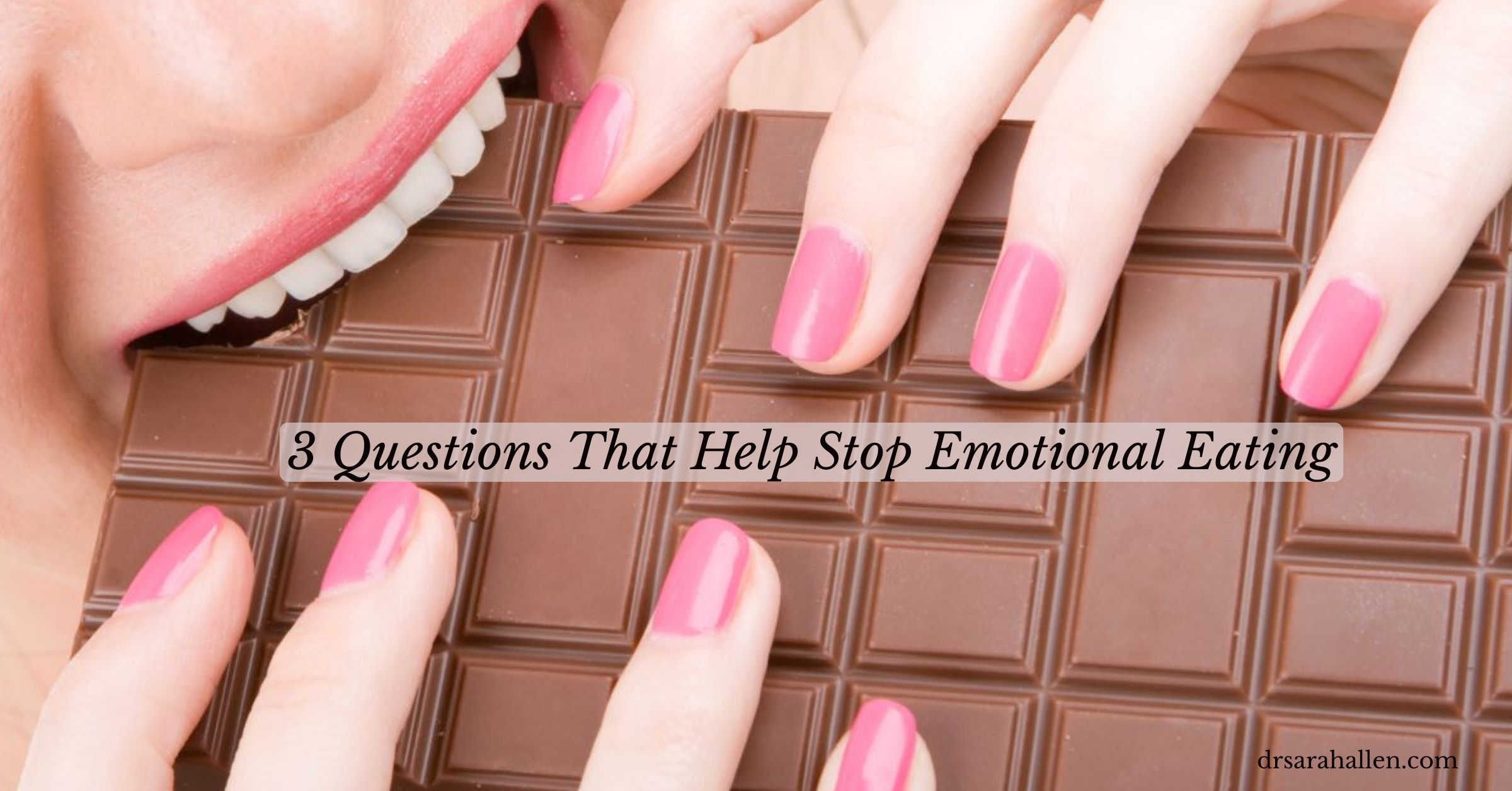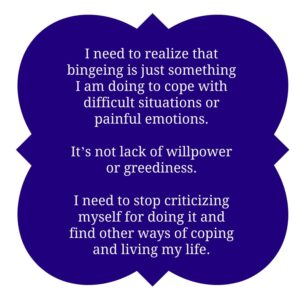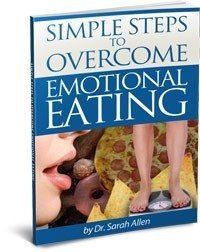
We all eat for emotional reasons sometimes but when eating becomes your main strategy to manage difficult emotions it can become a health and weight issue. It is a temporary coping strategy that can cycle into guilt and shame, ending up with us berating ourselves. We don’t tend to reach for a carrot or a bowl of raspberries when we feel a negative emotion do we. When a person is eating to satisfy or push down emotions they tend to choose comfort foods which are typically high calorie, high sugar and fat.
People say to me that they feel like their relationship with food is like an addiction but more difficult to manage than say alcohol or cigarettes because we need to eat to survive. A different way of looking at this is to ask yourself whether you are eating to satisfy your physical hunger needs or your emotional needs.
Emotional Vs Physical Hunger
Emotional hunger comes on suddenly & urges you to satisfy it instantly.
Physical hunger can wait
Emotional hunger craves specific comfort foods
Physical hunger is open to a wide range of options
Emotional hunger isn’t satisfied, even when your stomach is full
Physical hunger stops when you’re full
Emotional eating triggers feelings of guilt, powerlessness and shame
Eating to satisfy physical hunger doesn’t make you feel bad about yourself
What you reach for when eating to satisfy an emotion often depends upon the emotion. We learn early on that food influences our mood. We might get certain treats as a child so we recall being happy with candy or ice-cream and when we are low, we want cheering up or maybe we see it as treating ourselves. One of the most distinguishing characteristic of emotional eating is that you’re focused on a particular food, most likely a comfort food.
There seems to be a gender difference. Men prefer comfort foods like pizza and steak whereas women are more likely to be comforted by the sweet stuff, ice-cream and cookies. The texture is often important too. When people are angry they tend to crave crunchy things.
Emotional eating tends to be automatic and virtually mindless. Before you even realize what you’re doing, you’ve reached for the bag of chips and polished off half of it. As you open your refrigerator or your kitchen cabinets reaching for food, learn to stop and check in with yourself. That way you give yourself the opportunity to make a different decision.
It is never easy to just tell yourself to just stop. Saying to yourself you are not allowed to have certain foods is a sure way to crave them and of course to eventually give in to the craving. This is why emotional eaters tend to yo-yo diet, quickly going through the cycle of binge -> guilt -> try to adhere to strict diet to feel more in control -> failure to adhere to such a restricted way of eating -> binge and so on….
Although emotional eating can provide a temporary fix, the aftermath is usually brings on feelings of guilt and possible shame, especially if you are worrying about your weight or health.
When you find yourself craving comfort/junk food one of the first places to start trying to changing emotional eating is to notice what you are doing and if possible, try to find a healthier version of the type of food you are craving rather than just try to not eat. If you do end up eating the ice-cream though, don’t beat yourself up. When you feel less upset and overwhelmed it is time to start addressing what is triggering your emotional eating and find better, healthier coping strategies to manage the situations that are causing you to feel stressed in the first place and to come up with different ways to express your emotional needs.
1. Ask yourself why emotional eating has served you in the past?
Previous experiences and/or the negative things that we say to ourselves can be the reason that emotional eating began as a coping strategy for painful feelings e.g. If you got angry at a parent were you in worse trouble so you gave up speaking your mind? Do you believe showing emotions is a sign of weakness? Are you in a relationship that you feel will never change so what’s the point in saying how I feel?
People who tend to have catastrophic thinking “I can NEVER get it right”, “Everything is RUINED!” often feel that they are not in control of events and situations and so don’t believe they can change things for the better.
There are many reasons why pushing down our emotions can seem like the only coping strategy available but you have to ask yourself:
2. Why isn’t this strategy working for me now?
People usually answer this question because weight or health issues have become a concern or perhaps they are currently in a situation where they are experiencing more stress than ever before and the frequency of eating to deal with difficult emotions has increased.
3. Can I forgive myself?

YES! There is a huge amount of guilt and shame tied up with perceived over-eating. It might feel good in the moment but after the food is gone the recriminations begin. Print this up and put it somewhere you can see it.

To find out more about emotional eating and to download the free booklet Simple Steps To Overcome Emotional Eating (which includes questionnaires to find out what if you are an emotional eater and if yes, type of emotional eater you are) use the sign up form below the book.
For more info on emotional eating visit my Weight & Emotional Eating page.
Dr. Sarah Allen specializes in empowering women to live the life they want. Visit www.drsarahallen.com for more blog posts on a variety of issues relevant to women. She can be reached at (847) 791-7722 or by the form at the contact page.